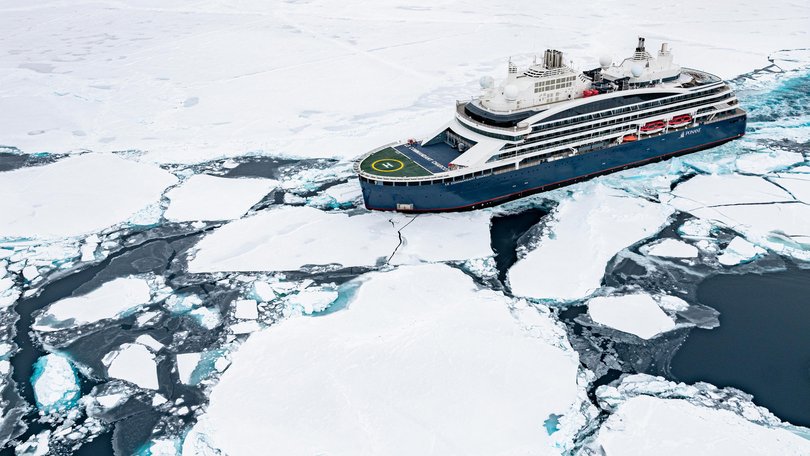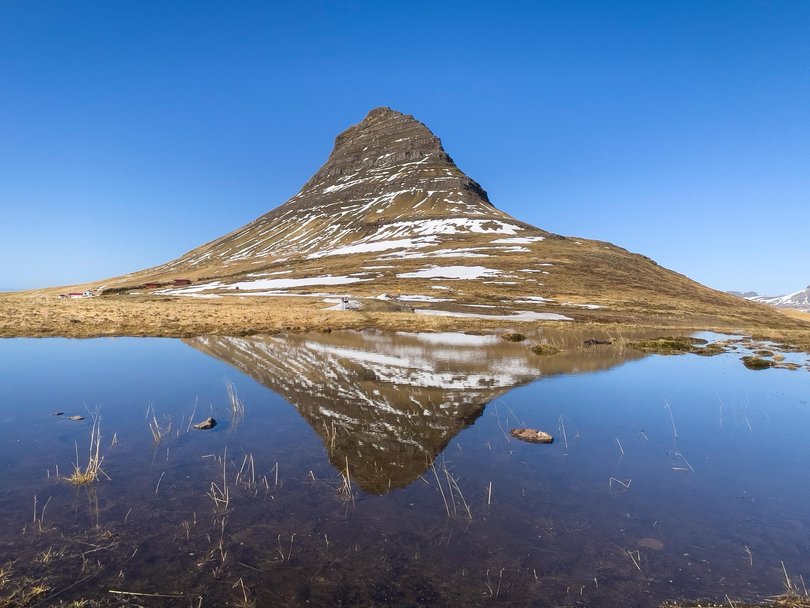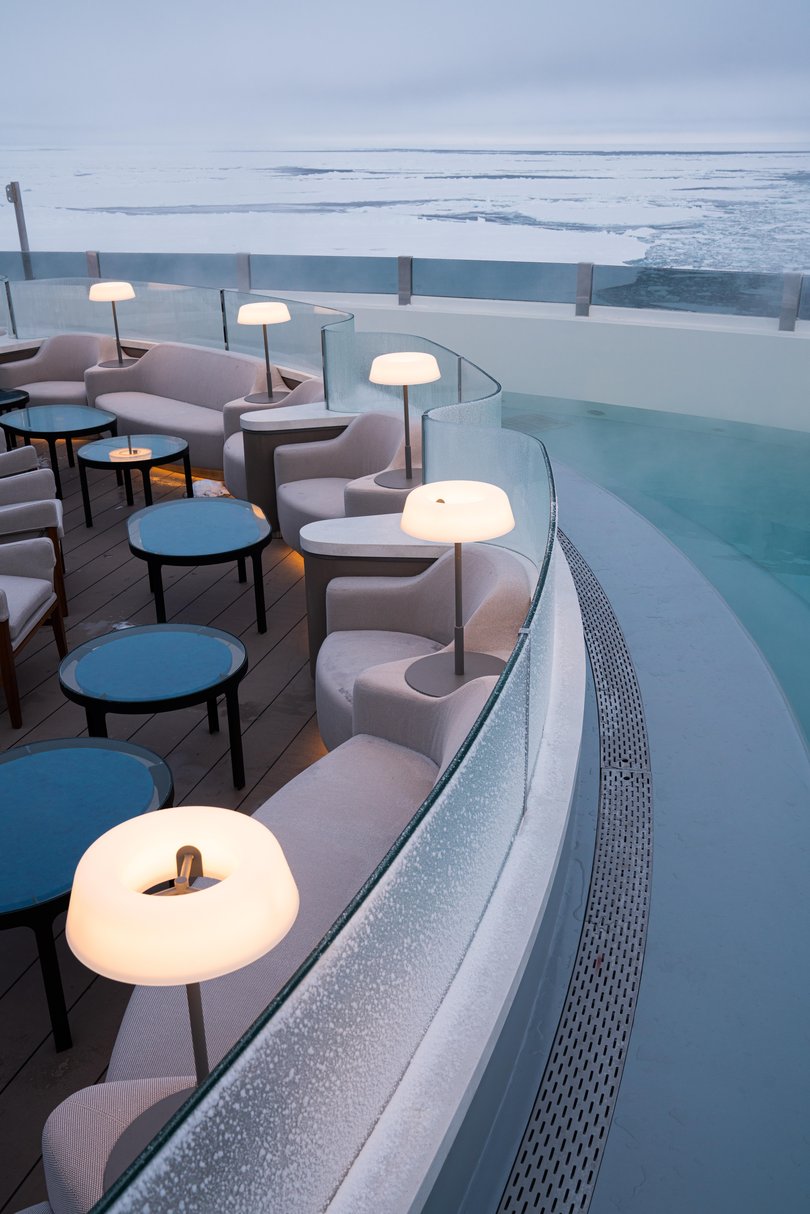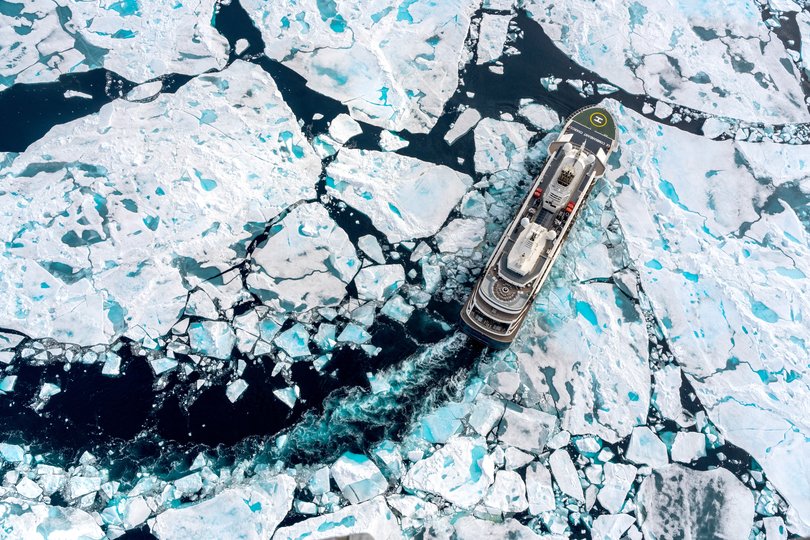Ponant’s Le Commandant Charcot: The Greenland cruise that forces you to breathe in contemplation
Some adventures force you to breathe in contemplation – like an Arctic excursion aboard Ponant’s Le Commandant Charcot.

Greenland doesn’t do welcome mats. It does wind, ice, and the sort of silence that makes you question your own relevance. Yet here we are — 120-odd passengers wrapped in Moncler and hubris — sailing up the east coast of Trump’s second favourite country aboard Ponant’s impossibly wonderful Le Commandant Charcot, plotting a journey to the edge of the map.
Charcot — named for the French explorer and scientist Jean-Baptiste, lost to these frigid waters in 1893 — is, in many ways, a floating contradiction: hybrid engines and Hermes throws; polar science and patisserie. There’s a snow room in the spa. Yes, a snow room. In Greenland. The French, God bless them, never miss a chance to gild the, ahem, iceberg.
The outside world — framed by an extravagant use of glass that brings the outdoors in — presents as almost prehistoric. It is completely foreign. Untouched. Unexpected in its raw power. Deathly quiet. Oh so much better than the brochure.
Sign up to The Nightly's newsletters.
Get the first look at the digital newspaper, curated daily stories and breaking headlines delivered to your inbox.
By continuing you agree to our Terms and Privacy Policy.We’re sailing Ponant’s Inuit Spring itinerary. While we’re offered a plotted pathway along the coast — having set off across the Denmark Strait from Reykjavik — the journey is, as Charcot’s good captain Etienne Garcia is eager to point out, his words held by a soupy Gallic accent, “an adventure. It is an experience, an exploration ... I do not yet know where exactly I am going; the ice and the weather will decide.”
It’s that adventurous layer that adds to the allure of the 11-day itinerary. Our journey boasts time “off-ship” at villages such as the colourful Tasiilaq or dog-sledding near Kulusuk. We also venture across the ice to hike remote mountains — an eventual view enabling even greater understanding of the vast remoteness — with ice-fishing, kayaking and various Zodiac adventures.
So, too, a polar plunge into one-degree waters for those brave enough (and who turned up with their doctor’s signed consent). Yes yes, but did you see polar bears? We did: several. And at one stage we cut engines and sat as a collective of well-heeled voyeurs (replete with telescopic lenses) watching as a mother weened three cubs 30m off starboard. Orca — to use their friendly name — also encircled and played alongside the ship, with plentiful birdlife above. And yet it’s memories of silence and icy dreamscapes that still linger 12 months on — memories of icefloes drifting past like lazy continents cutting through the pewter-coloured sea. Every few minutes, one of these frozen sculptures would tilt or fracture with a sigh, and the sound would carry — long, hollow, ancient.

You feel the silence — cold and crystalline — pressing gently against your ears. It’s the kind of quiet that makes you aware of your own pulse, your own warmth, your own timeline.
Out here, beauty isn’t soft or sentimental — it’s elemental, almost holy.
A different religion covers the sumptuous interior levels of Charcot — service built on repose and desire and culinary indulgence, as led by menus crafted and overseen by the Michelin-starred Alain Ducasse. It’s a level of, well, let’s be honest, decadence that makes the “real world” feel lacking — because what is daily life without foie gras stations and perfectly bloodied Argentine cuts cooked to order, plump, mirrored caviar and seafood good enough to sate even fussy Australian palates? All washed down with apertifs and martinis and Krug Grand Cuvee and wine lists of refinement, crossing the world via labels and grapes.

Charcot shouldn’t work — this cocoon of champagne and cashmere drifting through one of the planet’s last untamed frontiers — yet somehow it does.
The hush of the ice, the taste of salt and Sancerre collide in a kind of elegant dissonance that feels right.
It’s not so much luxury at the end of the world, it’s luxury that amplifies the awe. Wrapped in warmth, watching the Arctic dance all around, you feel both coddled and exposed — balanced between comfort and revelation.

With Charcot and its icy adventures, Ponant has managed something very few can match — turning such contradiction into a sense of enchantment and making discovery feel brand new.
